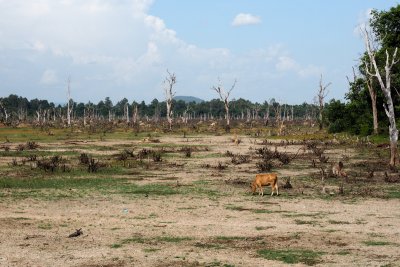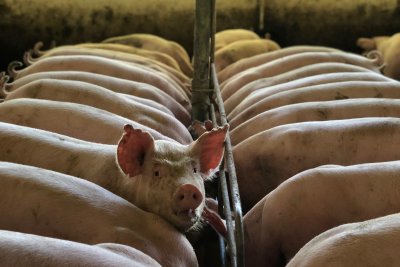Landmark FAO report “systematically underestimates” potential climate benefits of lower meat diets
Over 100 organisations and academics call for retraction of key report over concerns about downplaying the potential of lower meat and dairy diets.

The report Pathways towards Lower Emissions, published at COP28 in December 2023, included claims by the FAO that lower meat and dairy diets had limited potential to reduce emissions, promoting instead other methods such as intensification of livestock production. The main evidence the FAO report cited for this claim were papers co-authored by academics Dr Paul Behrens and Dr Matthew Hayek.
In April 2024, Behrens and Hayek wrote to the FAO to express “dismay” that the FAO’s paper “seriously distorts” their scientific papers, calling for a retraction and re-issuing of the report with “more appropriate sources selected and methodological errors rectified”. Behrens and Hayek concluded that as a result of the serious errors it contains, the FAO report “systematically underestimates” the opportunity of sustainable lower-meat and dairy diets for reducing greenhouse gas (GHG) emissions compared to a business-as-usual 2050 scenario by a factor of between 6 and 40.
Now, over 100 organisations and experts have signed a joint-letter to the FAO’s Director-General, Dr. Qu Dongyu, calling for the report to be retracted. The letter, coordinated by Feedback Global, is signed by 78 civil society organisations including Sustain, Greenpeace, Changing Markets Foundation, Friends of the Earth US, Rainforest Action Network, ActionAid US and Seeding Sovereignty. It is also signed by 22 academic experts, Connecticut State Representative David Michel and investor Adasina Social Capital.
The organisations support Behrens and Hayek’s call and request “a comprehensive investigation of how these serious errors and systemic biases were allowed”. The letter also recommends that the release of the FAO’s 2050 Roadmap should “be delayed until it has adopted “more robust, inclusive and transparent processes”. Last year, the FAO faced allegations from former staff that it had ostracised them and censored their work for highlighting the climate emissions impact of livestock and potential benefits of dietary change to reduce meat and dairy consumption.
Methodological errors
The significant methodological errors in the FAO’s Pathways report are claimed to include double counting meat emissions to 2050, mixing different baseline years in its analysis, and including emissions from increases in vegetable, fruit and nut consumption which are unrelated to substituting meat and dairy in diets. In addition, the FAO is accused of making several inappropriate modelling choices, such as ignoring the potential carbon sequestration from land spared by dietary change.
The organisations call on the FAO to align its research with other peer-reviewed science, such as EAT-Lancet and the IPCC’s Special Report on Climate Change and Land, which estimate much higher emissions savings. For instance, the IPCC cites a study which estimates that a flexitarian diet (75% of meat and dairy replaced by cereals and pulses, with only one portion of red meat a week) would reduce global emissions by approximately 5 GtCO2-eq per year – over 9 times higher than the FAO’s estimate.
Martin Bowman, Senior Policy and Campaigns Manager at Feedback, said:
“The FAO has made serious and embarrassing errors in its Pathways report – these mistakes are a stain on the FAO’s reputation, unless rectified. All these errors systematically underestimate the emissions reduction potential of lower-meat and dairy diets. People will rightly ask whether FAO staff have simply been incompetent, or whether this indicates systematic bias against dietary change – particularly in light of recent allegations from ex-FAO staffers that they have been ostracised and censored for their work on dietary change, following lobbying from livestock companies and high-meat producing countries. The FAO must restore its integrity by immediately retracting the flawed Pathways report, and reissuing it with mistakes rectified, following engagement with academic experts and civil society.”
Published Tuesday 2 July 2024
Food for the Planet: Food for the Planet is helping local authorities, businesses and organisations take simple actions to tackle the climate and nature emergency through food.





